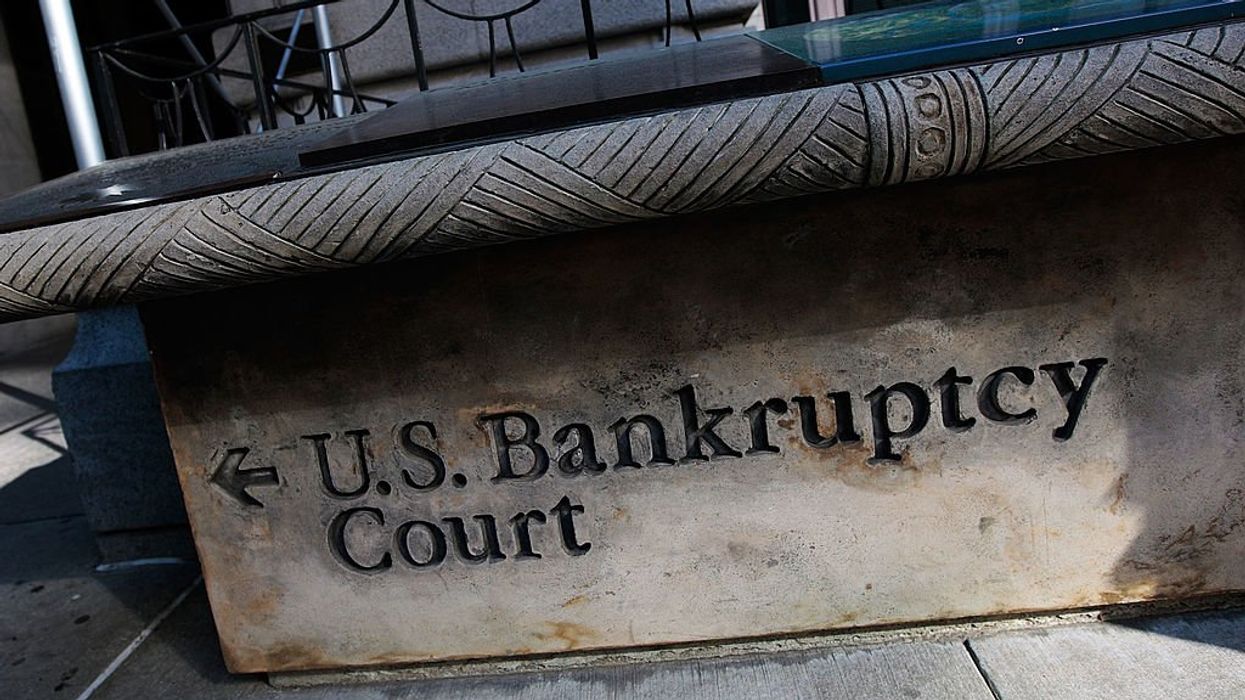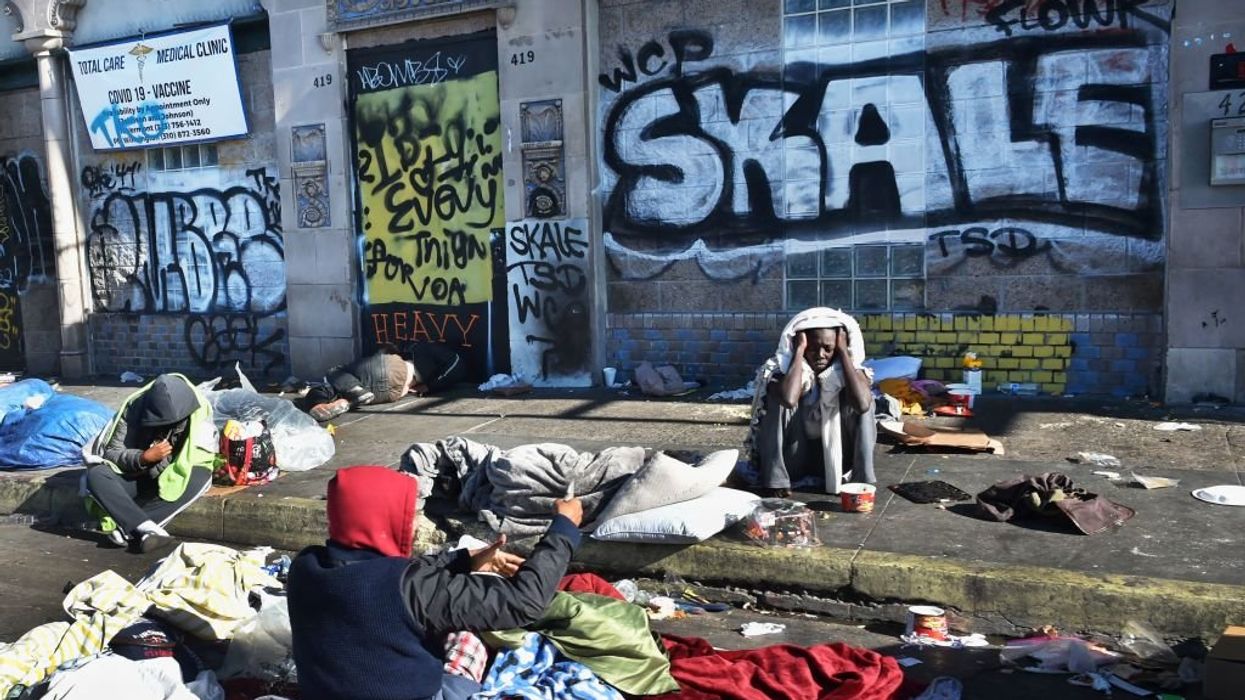On radio this morning, Glenn reflected on some of the news stories of the day that are shaming private businesses into making certain decisions. As Glenn explained, private businesses have the right to make decisions and operate as they see fit, and he proceeded to dive into a monologue that considered the ever-changing role of gatekeepers and the power of the individual to overcome those barriers to entry.
Below is an edited transcript of the monologue:
There’s a story about Amazon. Amazon is getting pushback because they're in dispute with some publisher – and I don't know what even the dispute is about – but they don't want to sell these books made by this publisher. So people are standing up and saying, ‘Amazon can't silence my book.’ Yes, they can. They're a private company. Yes, they can.
This is where freedom of speech and freedom gets ugly. Yes, they can. I don't have a problem with it unless it's a regulated industry. In other words, if the government said, ‘No one else can sell books online except… Amazon.com and iBooks… And if you want to, you got to come through us.’ Well, then you have a problem because then a publisher cannot get his book out. But if all the private companies, in an unregulated situation, decide, ‘I don't want to do it,’ then nobody is there to force them to do it. You can't force people to do it, if it's all purely private.
[…]
They're making the case that Amazon is crushing voices. No, Amazon has the right to do that as long as it's not a government regulated industry. And government regulation is the problem. If I can start selling books myself online, I may not be able to compete and make it as good as Amazon right at the very beginning. It's like WalMart. WalMart started out with a guy's truck, man.
For some reason, this Disney prospectus is going around. There's like the second story I've read and the Huffington Post has a story about the prospectus of Disneyland that I have, and they're showing pictures of it on the Huffington Post today. I don't know why. But the most amazing thing about that is in 1953, he was told no by the banks. But there was no government regulation. Think of the restrictions of this. October of 1953, he's turned down. He needs $17 million. He's turned down by all of the banks. By the end of 1953, beginning of 1954, he has financing. So he gives it the green light in the beginning of 1954. Summer of 1955, he has purchased the orange field in California, cleared all of the land, built all of the infrastructure, designed and built all of the rides, all of the merchants, done all of the publicity for it, and opens the gates in 18 months. There's no way you get even the ground study in 18 months [today]. That's when a man was free.
Now, let me ask you this. I'm using Walt Disney because I relate to him. I thought about this the other day. Imagine America, what would we be like if Walt Disney never lived? What would America be like if Walt Disney never lived? How much history would have been lost? How much joy would have been lost? How much would we not believe in the entrepreneur in a one man can make a difference? Think of that. Walt Disney, he was not the smartest guy in the room. He had sheer willpower. The same thing with Steve Jobs. It was sheer willpower. Pixar did not want Steve Jobs… In the end, they had to take the offer from Steve Jobs. But everything he did was sheer willpower. ‘No, guys, we're doing it. Let's go. We're doing it.’
Can a man still do that? We're building this network. Yes, you can build a television network. You can build a successful television network, successful book publishing company. You can build a successful new charity. You can even make your own jeans and sell them and make that a success. Yes, you can do all of those things. Now, can you get the mass distribution? I can't build a mass distribution platform anymore. You cannot build Comcast. You have to go through the government. So I can only build so much. And then the gatekeepers start. That's what we came away from. That's what we wanted to escape – the gatekeepers. And that's what they're putting everywhere. Sure, you can educate yourself. Go ahead. Do your home-schooling thing. Of course, if you do that, you have to take the SAT, and you won't make it to college. But go ahead. You can do that. They will only allow you to get so much. And the rest of it, if you want the real prize, you play ball.
Look at this with political parties. You really think you can get elected? I did. I used to believe that a man could just go be who he is and then become the president of the United States. I don't believe that anymore. You can only go so far, and then the uber powerful along with their parties and their machinery step in.
Now, I hope we find that to be incorrect. I didn't believe in gatekeepers three years ago. I believe they believed they existed. I just believed you could get around them. I'm still looking for the way around them. I do believe there's a back door somewhere. We're going to short-circuit this system somehow or another. It's going to work. But because of the sheer willpower that it takes, how many Disneys are we missing? How many people have given up in our society because they believe the lie: You can't make it? How many Steve Jobs? How many teachers? How many great conservative thinkers? How many great actors that are conservative that just didn't make it? Couldn't make it. Stacked against them. How many great writers?
When we first started writing books, Rush Limbaugh was an anomaly. That's what they told us. What Rush Limbaugh did is an anomaly? Excuse me? He sold like 650 million books. What are you talking about? ‘Well, that's Rush Limbaugh.’ Yeah, he's not the only one who makes us good points, you know. ‘Yeah, well, Conservatives don't read.’ How many great conservative minds, how many great conservative professors have been lost because they've been ground up into little bits. Some have been humiliated. Quite honestly, how many of them became just raging alcoholics because their spirits were crushed?
We have the opportunity to be so much better than we are. There is a new day coming, a new dawn coming. There really is. I was listening to Pandora yesterday, and I'm hearing this group. And I'm like, ‘Wow, I like that song.’ I hear another group I had never heard. ‘Man, I like that, too.’ I'm a radio guy. I'm a broadcaster. I remember when the record companies used to come into the hallway and wait to meet with people like me. I remember being 18 and seeing the record producers come and wait in the hallway and beg the program director of WPGC in Washington, D.C., ‘Just give this song a chance.’ The graft that used to happen, the games that used to happen… that's the way the system worked. It was corrupt. Now, you can record something on your phone that is good enough and could be heard anywhere. Millennials don't. Baby boomers do. Really? Where is the individual in that?
I believe in the power of the individual. I believe there is a millennial living in America now who will change our world for the better. There is a millennial that is living in America right now that will change the landscape of technology. There is a millennial in America right now that will change the landscape of politics in America for the better. There is a millennial living in another country who will move to the United States and change the way we communicate with each other through a form of communication that we don't even understand yet. We don't even know of. There's a millennial living somewhere who will see America as a faded shining city on a hill and find the way to make it shine again because I believe one person changes the world.
Gandhi, Martin Luther King, Ronald Reagan, Steve Jobs, Albert Einstein, and, yes, Stalin and Hitler and Bin Laden – the struggle of good versus evil. It's the struggle of one individual, and their one struggle between good and evil that changes things. I choose to focus on the good, to believe in the good, to pray for the good, to expect the good, to demand the good because… I'm still lucky enough to believe that the vast majority of people are good. They're courageous. They're tireless. They're decent. They're loving. They fear God.
It's not the collective. Enough with the collective stereotypes. Believe in the individual. Which means if you do believe, like I do, it's up to you to be good. It's up to you to be decent. It is up to you to be loving. And then look for the ripples. It is the ripples that will save the world. Today, make some. Make just one ripple.”








